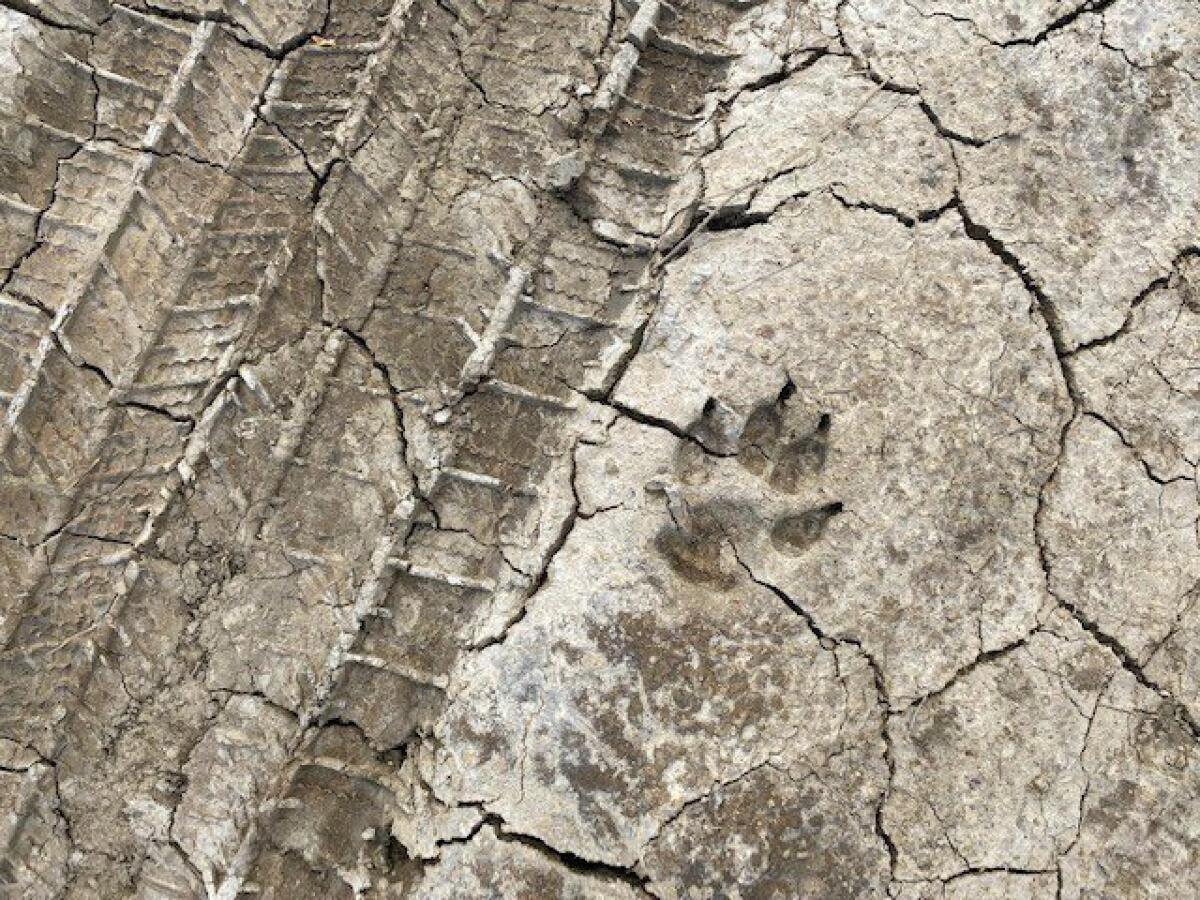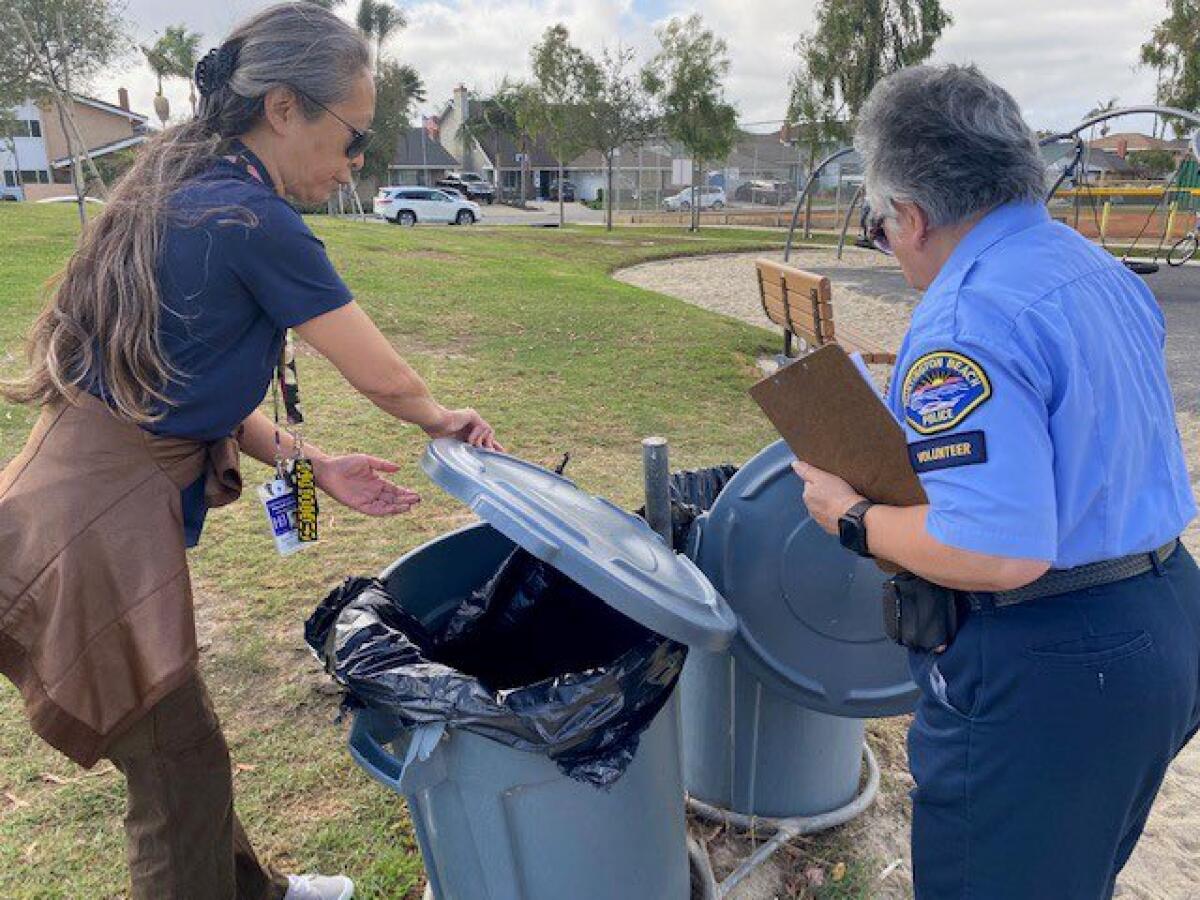43 coyote sightings reported in Huntington Beach over the past 3 months

A team of volunteers formed earlier this year to conduct “coyote yard audits” in response to reports of the feral canines in human-inhabited areas of Huntington Beach have been busy handing out tips to residents and businesses near recent sightings, police said Thursday.
Over the past three months, 43 coyote sightings have been reported in Huntington Beach, according to the city’s police department spokeswoman, Jessica Cuchilla. Some have occurred near the intersections of Warner Avenue and Edwards Street as well as Brookhurst Street and Indianapolis Avenue.
Huntington Beach’s Wildlife Watch has performed the audits, which were designed to help homeowners identify things they might be doing to inadvertently invite coyotes and other wildlife onto their property. Auditors look for things like pet food left outside, ripe fallen fruit on the ground, food residue on outdoor grills and unsecured garbage bins because coyotes are known to be scavengers with a diverse diet.
Volunteers also recommend keeping bushes and hedges trimmed to eliminate places where wildlife might be able to take shelter on their property. Pet owners are advised to keep their critters indoors because coyotes are known to prey on small animals.
The team has also been performing outreach and handing out educational materials at community meetings throughout the city.

Huntington Beach’s Wildlife Watch is an extension of a program set up by the California Department of Fish and Wildlife to prevent conflict in the face of increasingly common interactions between humans and wild animals. It consists of five volunteers and was put together in July based on input from officials from the state agency and residents who attended a town hall earlier this year regarding a growing number of coyote sightings in the area.
That meeting took place May 9, nine days after a 2-year-old girl from Chino Hills was bitten by a coyote while visiting Huntington Beach Pier. She suffered lacerations to her face and now panics when she is around dogs, according to attorneys representing her family.
Police responding to reports of the attack shot and killed two coyotes found nearby. DNA tests confirmed that one was the animal that bit the child.
No other attacks on humans have been reported in Huntington Beach since then, Cuchilla said. However, at least one pet was either injured or killed by a coyote in the past 90 days.
Huntington Beach is one of several cities that have formed coyote-management plans in response to the growing prevalence of wildlife in urban settings. Some call for the formation of hazing teams to actively search for and scare away coyotes if they are known to frequent a certain area.
Earlier this month, officials in Fountain Valley amended the city’s municipal code to ban not just feeding but any physical contact with wildlife. That change came about 4 months after another 2-year-old girl was bitten by a coyote at Mile Square Park. The animal involved in that attack was euthanized.
Wildlife that have displayed aggressive behavior to humans are typically deemed too much of a threat to be kept alive and are put down. Relocation is not an effective solution for coyotes that have become too comfortable in urban settings but are otherwise docile. They are capable of traveling great distances and typically find their way back to their preferred habitat.
The most humane and effective way to keep coyotes away is to keep them from wanting to come onto your property and getting used to being near humans in the first place, according to Fish and Wildlife officials.
All the latest on Orange County from Orange County.
Get our free TimesOC newsletter.
You may occasionally receive promotional content from the Daily Pilot.




